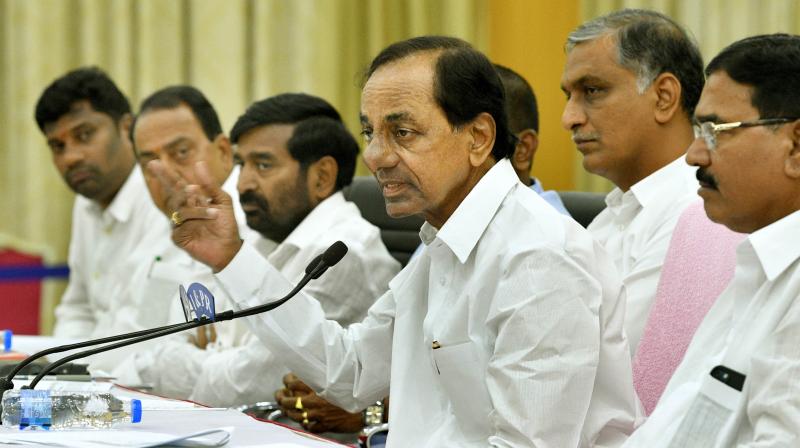Cabinet meet on March 9 to review salaries, pension


The crucial Cabinet meeting on March 9 is expected to take a decision to constitute a new pay revision commission (PRC) to revise salaries and pensions.
Hyderabad: The crucial Cabinet meeting on March 9 — the first since December 10, 2022 — is expected to take a decision to constitute a new pay revision commission (PRC) to revise salaries and pensions for government employees and pensioners, as well as approve welfare schemes for various sections with an eye on the Assembly elections.
The Cabinet meeting, which is being held against the backdrop of BRS president and Chief Minister K. Chandrashekar Rao’s plans to focus on the party expansion to other states after the Holi festival, is expected to approve the distribution of Rs 3 lakh aid to BPL families who own plots to build houses.
A decision on the modalities for selecting beneficiaries under the Dalit Bandhu plan is also expected, as the High Court ruled against MLAs selecting beneficiaries in November last year, putting the scheme’s implementation on hold.
Decisions on the long-pending crop loan waiver scheme and the distribution of two-bedroom houses for the poor are also expected. Over 1.4 lakh 2BHK houses are ready for distribution across the state, but the process has been halted due to concerns surrounding beneficiary selection.
The Cabinet is also expected to take a decision on the procurement of paddy from farmers for MSP during the ongoing rabi season, despite the Centre’s refusal to procure parboiled rice.
The state government requested the Centre to purchase parboiled rice in the rabi season at a meeting with the civil supplies officials of all the states convened by the Union food ministry on March 1 in New Delhi.
The Centre, however, turned down the request but agreed to procure 80 lakh tonnes of paddy from Telangana during the rabi season and asked the state government to supply only raw rice to the FCI after milling.
It is expected to procure 54 lakh tonnes of raw rice after milling 80 lakh tonnes of paddy. In Telangana, mostly boiled rice is produced in mills from paddy grown in the rabi season due to heat conditions prevailing in the summer. If raw rice is produced in rabi like in kharif, it will yield broken rice which FCI does not take. As a result, the state government has to bear the losses.
The government is forced to sell broken rice at a cheaper price in the open market due to low demand, thereby incurring losses. Rabi paddy is harvested in the summer between March through June.
If parboiled rice is produced, the quantity of broken rice after milling will be significantly lower.
The state government expects record paddy production of 1.50 crore tonnes in rabi as it was sown in record area of 54 lakh acres but the Centre has agreed to procure only 80 lakh tonnes and that too raw rice.
The Cabinet is expected to take a decision on how to procure the remaining quantity of paddy and how much amount would be required for the government, including the losses suffered by the government on account of raw rice.







